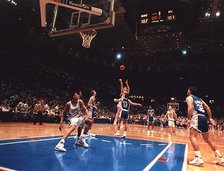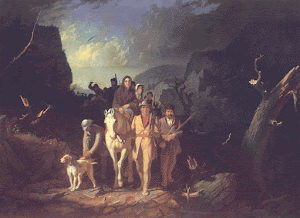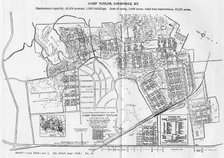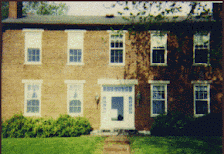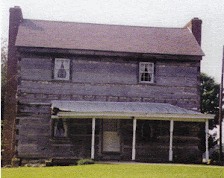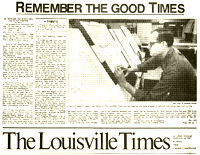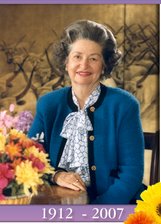Theatre [502] is in the middle of their production of Jordan Harrison's play Futura at Actors Theatre in downtown Louisville. It is directed by Theatre [502]'s Co-Artistic Director Amy Attaway. Migael and I took in the performance last night in the Victor Jory Theater in the Actor's complex. The setting is identified as taking place in a university lecture hall in the "near future." As the play is performed in one Act, with scene changes executed by a darkening of the theater, the presumption, though odd, is that the entire play takes place somewhere on that same college campus. The adjective "dystopian" has been used in all of the media hype for the play. Dystopian is, I suppose, the opposite of utopian. If you learned language as I did based on Latin, Greek, and other word-roots, you will recognise the "dys" which is bad, as opposed to "u" which is good. The other root is "topia," from "topis" for place. We get the word topography from the latter. So, if utopia is a good place, dystopia isn't.
Let's start at the end of the play, an uncomfortably small library in a secret room, with a teacher and a student beginning the process of learning to write all over. "Put your name up in the right-hand corner of the paper" the teacher tells the student. That's how we all learned, first to print, and later at the end of second grade, to cursively write on those ubiquitous writing tablets from kindergarten through fourth grade. A chilling, indeed dystopian, place to end a play. It is a great lament of the day that young students no longer learn to cursively write. In fact, they typically learn to type, or, euphemistically - and there's that "u" for good spelled slightly differently - kids do not learn to type at all; they learn to use the keyboard.
Today's keyboard has all kinds of characters on it besides the 26 letters and 10 numbers of the Latin-based alphabet we use in the United States. A few strokes away are symbols for Spanish, Portuguese, and other languages as well as signs for "libra" or "pound," a unit of money and weight in British-speaking places, or other signs not normally used in our Americised English. And with the help of our computers, word-processors, iPads, and telephones, we can change the size and font of what we read and what we "write." And all of this is safely stored away in some computer world, the "Cloud" perhaps, understood by some, but for most of us just "accepted" as being the way things are.
This play deals with the notion that all written forms and the means to create them have been put away - hidden away under the control of some "1984"-type business or entity or, perhaps, a college. We never really know.
The play starts with that same teacher, a widowed college professor, giving a somewhat tortured lecture about type fonts. Yes, type fonts. Probably not the most exciting lecture for most, although I was totally involved. As a reader and writer and student of words, languages, thoughts, and ideas, I found the subject totally engrossing. To my surprise, Migael did too. Anyone who has taken the time to read about the invention of the printing press, or the politics and intrigue which gave us the King James Version of the Bible, or any other histories of the beginning of the printed word, will find this part of the play familiar.
The play takes a violent unexpected turn with the professor's kidnapping and the rest of the story revolves around her eventual escape, if one could call it that. Three people are integral to the kidnapping - a bully, a character who first appears to be a street-thug, and - without giving too much away - another professor. And at first it is difficult to know exactly what separates the protagonists from the antagonists, if one judges those roles by who comes out doing what is best for humanity.
The bully, whose use of variant forms of the "f" word is simply gratuitous - most modern plays have adopted this gratuity for some unexplained reason (there was some discussion of this by three of the patrons on the Main Street sidewalk after the play) - is quickly offed in another unexpected scene, lending credence to the street-thug's character. And, as with all "bad" plots, there is the weak spot, in this case the same street-thug who, as it turns out, not only has a soft spot for the type-font lecturing professor - he was one of her former students we learn - but also for the written word itself, the anathema of the play, as he attempts to smuggle a book of poems for his own use.
The middle of the play is occupied by a great deal of dialogue between the two professors - and quite a bit of it went unheard by me, in part because because I do not hear well and in part because the acoustics for the play weren't the best. On several occasions my date relayed some lines to me recognising that I did not hear them. But the one I did hear during the professorial dialogue was paramount in understanding the play - a war between the format or platform for retaining information - whether electronically or in hard copy form. I will return to this thought at the end of this essay because it remained on my mind through the course of the play and indeed well into the night. But, I digress.
Let me speak here about the acting itself. I hesitate to say I wasn't as impressed as I was expected to be but maybe that was appropriate given the subject matter. The players seemed disconnected and distant. One of the "hallmarks" of modern communication is the distance and disconnectedness [a new word, perhaps] of we the speakers. We speak via chat boxes, email, text messaging, tweeting, and updating our Facebook statuses as if that is communication, as opposed to what they really are, simple electronic comments for which we may or may not receive a response, comments typically unadorned by accent, emphasis, or even bolding or italics; nor do we experience any body language or kinetics in these brief typwritten exchanges, the psychokinesiology involved in person-to-person communications. So it is possible the acting was intentionally disconnected and distant. I certainly felt that vibe.
Of the four actors, I have previously seen the work of three. The rather stoic and emotionless type-font lecturing professor was well-portrayed by Laurene Scalf, a veteran of local theater. Another veteran actor with many years to his credits was Tad Chitwood who is the other professor and boss, Edward Wexler, to the bully and street-thug characters. I was back-and-forth on whether he was a good-guy or a bad-guy, but more on that later. The unknown to me was the bully, acted by Betsy Huggins, a Marylander-turned-Louisvillian. She has recently acted and performed at a variety of Louisville venues including Actors and the Walden Theatre's Young Playwrights Festival. The final character, the street-thug - and in the final scene a student once again - was portrayed by Drew Cash, who I've seen here and there in various performances. I'm intrigued that the playbook mentions he'll be performing later this year for a two month national tour of King Arthur and Hamlet. As the seven regular readers of the Left Bank of the Ohio River near Milepost 606 are aware, things Arthurian and things Shakespearean are leit-motifs of my favored reading lists. I hope to learn more about Drew's upcoming plans.
But, back to the play. Another gunshot, this time from the stoic professor as aggressor and the boss-professor as victim effectively take the latter character out of the action of the play. The street-thug turns in favor to his former professor and they make their escape arriving at the "zero-drive" destination, an unknown and underground bunker, a small dark room of books and writing accoutrements, things our escaping professor, and perhaps her reprised student, believe are keys for the future. Eerily uncomfortable and dystopian indeed.
Let me return to the middle of the play and the discussion between the two professors, some lines of which went unheard. I wrote above, Laurene, the type-font lecturer, makes the argument, in so many words, that books and libraries, the traditional repositories of the written word and the information relayed by those words, are necessary for the future, for future generations to know and understand all that has been written before them. Professor Wexler argues, in turn, that much of what is recorded in books and then retained on library bookshelves is, for the most part, inaccessible to the great masses, and that the panacea for such is making all that is available in the electronic avenues which serve as the new and updated repositories of information. And the argument is hinted that such a reliquary as a library has limited use, its "books gathering dust," whereas modern electronic media is more widely acquired and used by far greater numbers of people.
"But the one I did hear during the professorial dialogue was paramount in understanding the play - a war between the format or platform for retaining information - whether electronically or in hard copy form."
It was at this point I decided that Professor Wexler was not an
antagonist but a
protagonist, ultimately the only one in the play. He is right - the wider accessibility of electronic media is better than all the libraries of the world sitting in quiet and staid possession of all the books on their shelves. This is not easy for me to write or admit to - it is, in fact, quite a revelation, perhaps an epiphany for me.
In my house are many, many books. I've estimated there are about 3000 books somewhere and perhaps another 1000 in the boxes of my garage. I am a hoarder of books. Most are political, historical, or theological in nature, as are the entries of this blog. But there are also most of the texts I purchased in high school or college. There are dozens of Bibles and interpretations of Bibles. There are so many Penguin and Folder editions of Shakespeare's works such that I could probably provide every actor in a performance of
As You Like It with their own copy of the play. At the auction of my great-grandfather's possessions in 1979, I purchased all of his library materials. When my high school was closed in 1981 and a number of books marked to be discarded, I salvaged them from the dump and allotted them an eternal home in my library. There is presently the one overdue library book, an autobiography of
Gore Vidal, part of the public treasury of the Louisville Free Public Library. There are probably six or eight books belonging to other others. I know for a fact I presently have books belonging to Tony McAdam, Bobby Simpson, Ken Herndon, and one belonging to the late Ed Prichard. And there are a number of books taken from the shelves of libraries due to changes in accepted language, books which may use words no longer deemed acceptaable by many. While the word "
fuck" is regularly acceptable, the words "colored" and "negro" are, for the most part, not.
This is an entirely different discussion so let's let that go for the moment. Ironically, there is one book missing from my library, borrowed in 2005, and the culprit of its absence was Migael Dickerson, my date for the night. If anyone comes across an errant copy of "
Getting Life in Perspective" please reclaim it for me. It was written in 1991 by Toby Johnson and is a very intersting read - almost utopian.
But, again, I digress.
Of all these books in my personal library, few if any have ever been perused by anyone other than me - the notable exception being the missing
Getting Life in Perspective. Professor Wexler's character points out the error of this misfortune. Books aren't meant to be hoarded, or if so, such a hoard should be made available to anyone and everyone by the most efficient means possible. His answer for that is an electronic-media warehouse of some sort. Of course, that isn't possible with my collection of mostly non-fiction hardbound writngs. I must endeavor to make my library more accessible, something that has never occurred to me before. And, while a morbid thought, I think I need to specify in my Will some more specific disposition of this most valued part of my estate. That, too, has never crossed my mind.
Thus, even if the acting wasn't up to my expectations and the acoustics less than desirable, the play's message was heard loud and clear. For that I am grateful.
The play's run continues this weekend.


